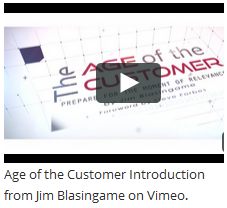In my last column I introduced the concept of crowdfunding — the new word and online methods of fundraising and capitalization. The two crowdfunding examples I described were contributions and business transactions doubling as fundraising.
Let’s continue with the third type, which is, crowdfunding structured for loans.
 Crowdfunding debt, AKA peer-to-peer and social lending, is like traditional borrowing: a request for funds comes with the promise of repayment with interest over a specific term. But the former is done online, and the latter is not. Individuals use crowdfunding for personal loans, but our focus here is for business borrowing, which typically involve four crowds:
Crowdfunding debt, AKA peer-to-peer and social lending, is like traditional borrowing: a request for funds comes with the promise of repayment with interest over a specific term. But the former is done online, and the latter is not. Individuals use crowdfunding for personal loans, but our focus here is for business borrowing, which typically involve four crowds:
1. Business borrowers
2. An online crowdfunding platform aggregating loan requests
3. A funding and underwriting source, likely a hedge fund
4. Individuals who invest with #3, knowing it’s for loans to small businesses
Remember the innumerable and anonymous crowdfunding factors from the previous column? These two are also in play with crowdfunding debt, because a large crowd is required to provide a pool of loan funds and dilute the risk, and investors are only known to the funding source aggregator.
Regardless of the funding source, crowdfunding or traditional, small business loans are expensive for the borrower because this sector is considered high risk for two primary reasons:
1. Most small businesses are undercapitalized and operate on a thin survival margin
2. Too many small business owners don’t track financial performance well enough to know how they’re really doing.
And since crowdfunding loans are unsecured, taking the risk to an even higher level, crowdfunding business loans are doubly expensive.
So is a crowdfunding business loan right for you? Here’s some context: If you can borrow from your bank, this year you’ll probably pay an average of about 6% annual interest rate. A crowdfunding loan APR will likely be 15% or more. Any questions?
Crowdfunding business lending has achieved some level of critical mass and is growing. As I’ve said before, the future of small business capitalization will look a lot different than it does today largely due to this emerging alternative.
Next time we’ll wrap up this series with a tour of the good, bad, and improbable of investor equity crowdfunding. And more tough love.
Write this on a rock If you can borrow money from a bank, don’t borrow from a crowd
Jim Blasingame is the author of the award-winning book, “The Age of the Customer: Prepare for the Moment of Relevance.”




